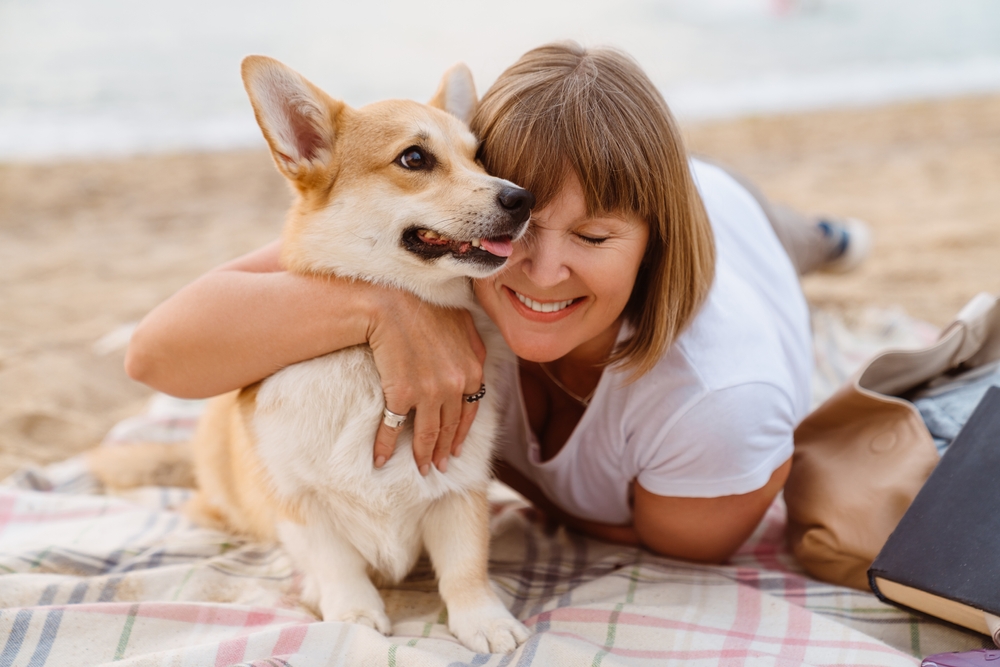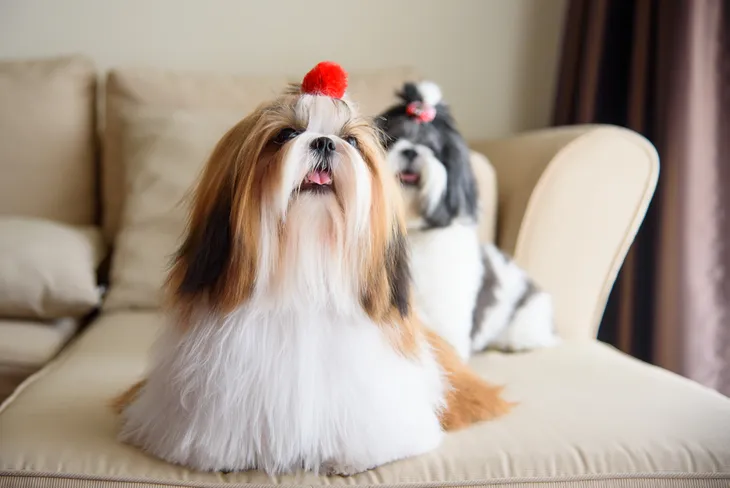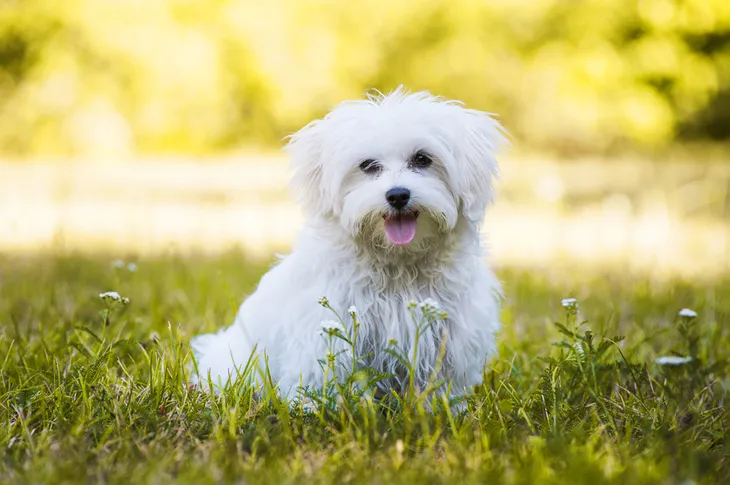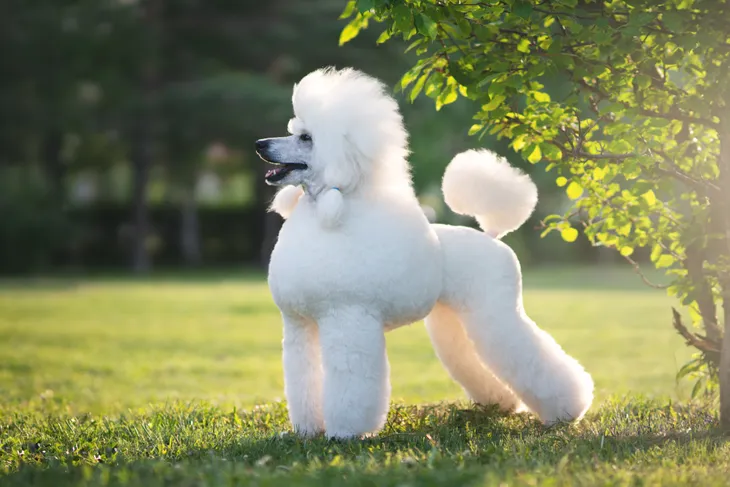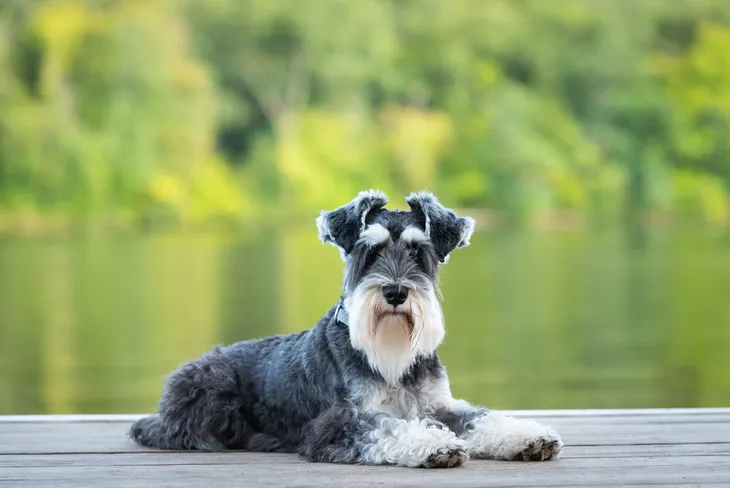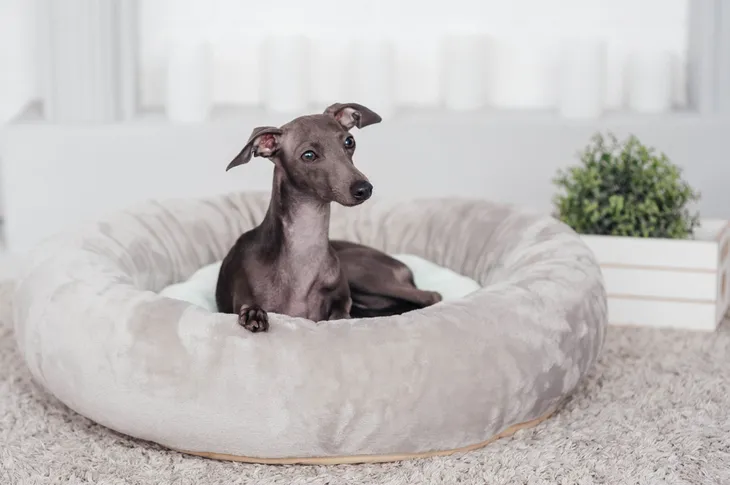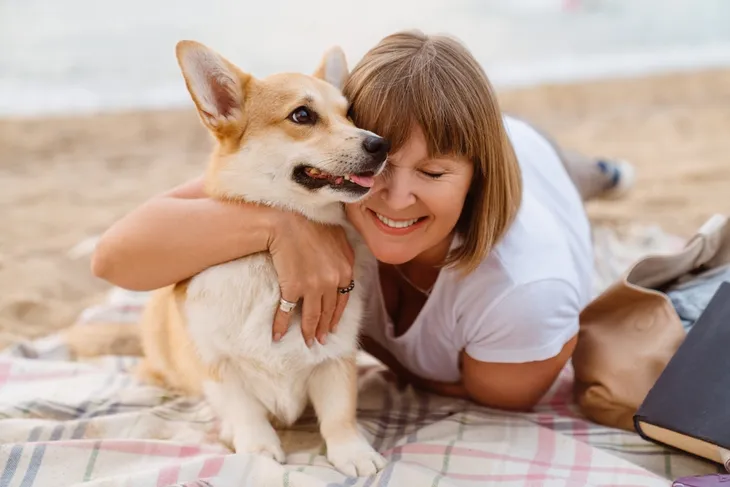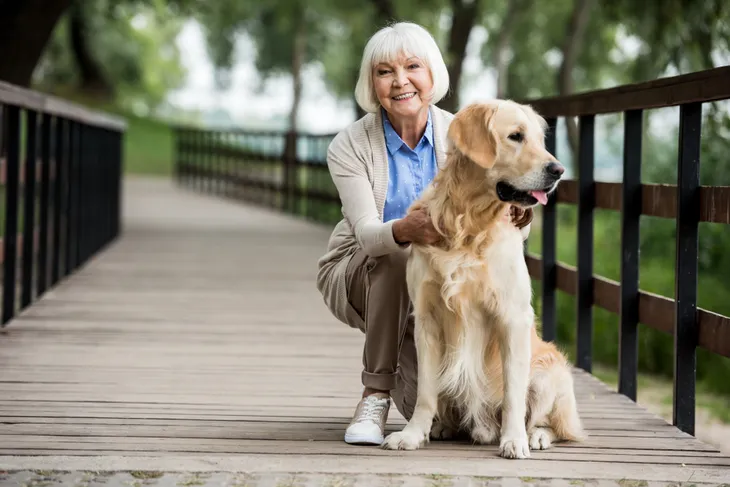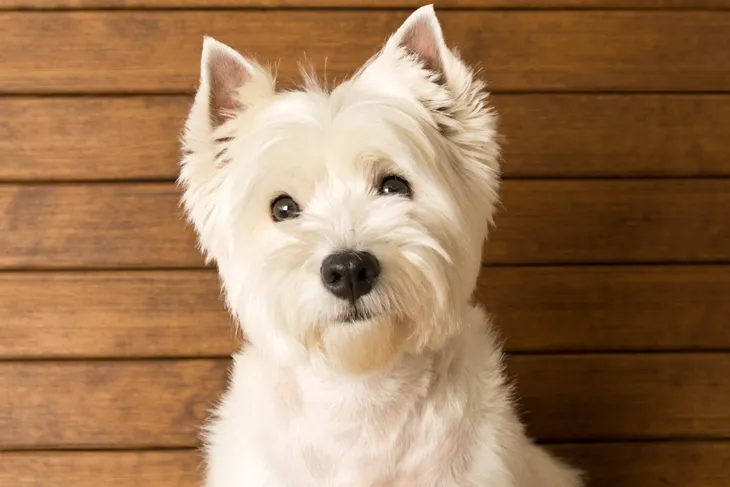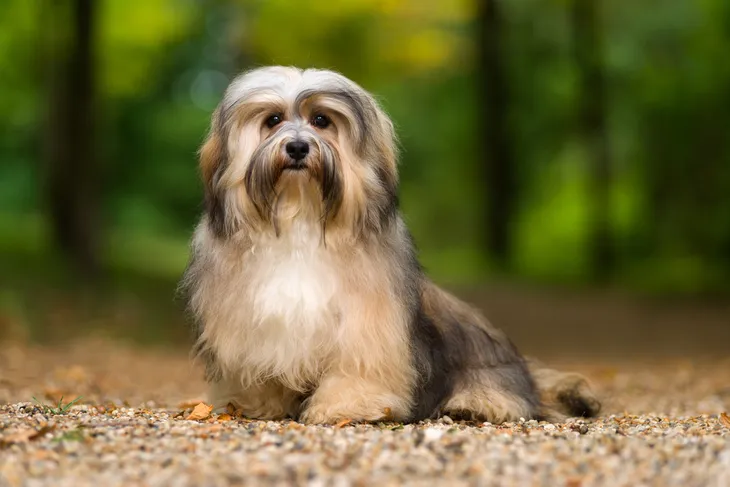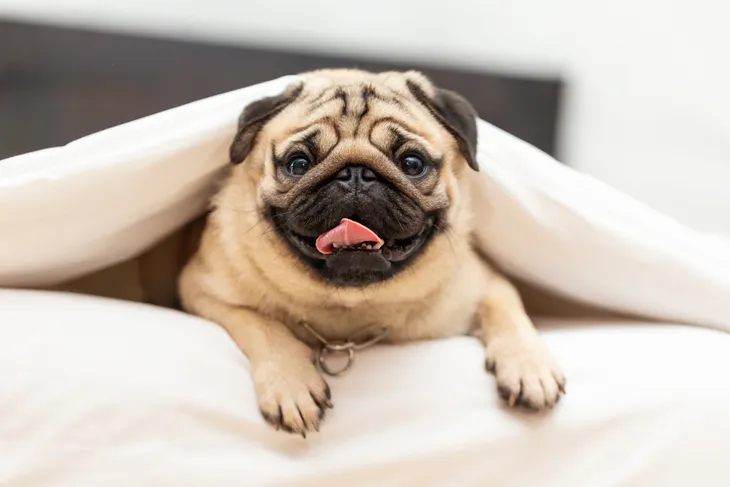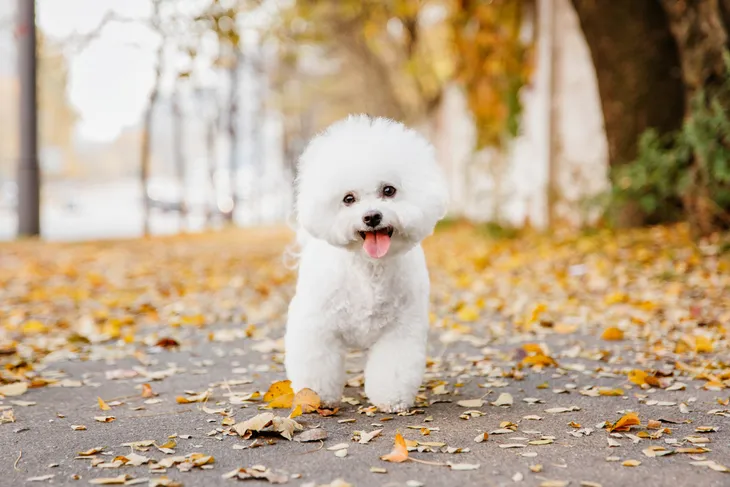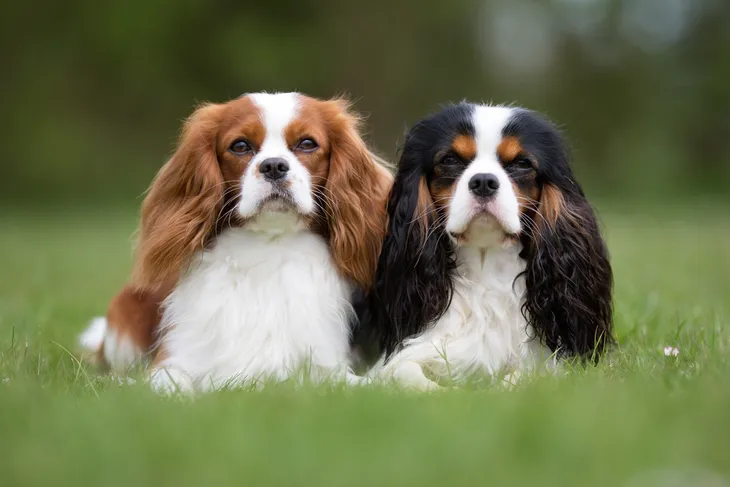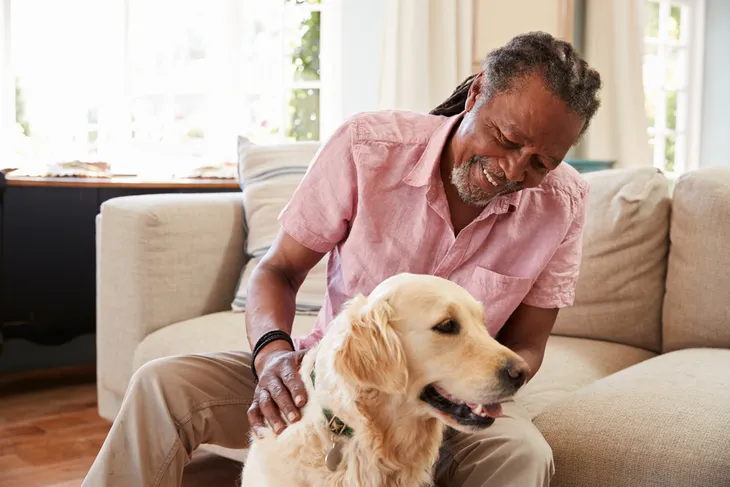- Owning a dog is not only rewarding but can benefit your health too, from decreasing blood pressure and cholesterol levels to managing depression and loneliness.
- While there are many dog breeds available some are more suitable for seniors such as poodles, corgis, pugs, and others.
- Before committing to being a dog owner you should first consider your lifestyle. Ensuring the dog is the right fit for your lifestyle is essential to keeping you and your dog happy and healthy.
Owning a dog can be both rewarding and a challenge. It turns out, owning a pet can benefit your health too, regardless of your age. The Centers for Disease Control and Prevention (CDC) says that some of these benefits include increased opportunities to get outside, socialize and exercise. In turn, this may decrease blood pressure, cholesterol levels, and triglyceride levels. Owning a pet can even help manage depression and loneliness as they provide us companionship.
Searching for the right dog isn’t without its challenges as there are tons of breeds to choose from! But some are more suitable for others, especially seniors. Before committing to owning a dog it’s important to assess your lifestyle and abilities. After all, you need to meet your dog’s needs. To help you on your search, here are 12 dog breeds to consider!
Shih Tzu
If you’re looking for a companion who wants to stay by your side, consider a Shih Tzu. These adorable long-haired dogs love to cuddle and crave attention. They’re also incredibly friendly to strangers and other pets.
Shih Tzus weigh around 9 to 16-pounds, making them great lap dogs. They have a playful demeanor but aren’t the most active on this list. That said, they do still require daily walks. They also require regular grooming to prevent their hair from matting.
Maltese
A Maltese is another small breed that makes a great lap dog. They love spending time with their owner and are attentive to their owner’s moods. In fact, WebMD says they’re “also frequently used as therapy dogs.”
Although playful, a Maltese will benefit from short, easy walks. They may also enjoy running around the house from time to time. Their silky white coat is beautiful and doesn’t shed. However, they do still require daily brushing and a weekly bath. You may also want to consider taking your Maltese to a professional groomer regularly to maintain their coat.
Poodle
If you’re searching for an intelligent dog that is also easy to train, you may want to consider a poodle. They’re known as one of the smartest dog breeds. The American Kennel Club (AKC) says their “intelligence and eagerness to please make them great service dogs.” This is why they’re often employed as therapy dogs, guide dogs, and assistance dogs for other individuals with other physical disabilities.
Poodles also come in three sizes including toy poodles, miniature poodles, or standard poodles. Not only are they loyal to their owners but they are also affectionate companions. Poodles are great for seniors because they can learn fast and easily adapt to different households. They require basic daily walks and need to be professionally groomed every 1 to 2-months.
Miniature Schnauzer
Miniature schnauzers are another great option for seniors, especially for those looking for a small breed. They’re lower maintenance as they don’t shed very much. However, they do still require regular grooming (as most dogs do) to maintain their coat and keep them looking their best. You’ll also enjoy that they’re eager to please and learn quickly.
Their small, compact size makes them a great lap dog. The Spruce notes, miniature schnauzers are more suitable for active seniors as they’re energetic. They require daily walks and enjoy a fenced-in area where they can run and chase a ball. When taking them for a walk, keep them on a leash as “they might not resist the urge to chase after small animals,” says the AKC.
Greyhound
You might be thinking, wait, isn’t this a racing dog? Can they really be a good fit for seniors? While it’s true they do have a reputation for high energy levels, they actually really enjoy lounging and sleeping. They were “designed as sprinters, not distance runners,” says Dogtime. This also means a daily walk will suffice. They also enjoy a fenced-in yard where they can roam around and play.
Furthermore, greyhounds are great companions for seniors because they can easily adapt to apartments and are responsive to training. Even though they’re on the heavier side (around 60 to 80-pounds), the Spruce says they’re easy to handle.
Pembroke Welsh Corgi
The Pembroke Welsh Corgi is famous for being Queen Elizabeth II’s favorite pet and it’s easy to see why. This intelligent breed craves human attention and loves to please its owners. They’re also the perfect medium-sized dog weighing around 24 to 30-pounds.
Corgis are herding dogs by nature which means they do need regular exercise. That said, they will be happy with a daily walk. Their short legs and round body make them quite the adorable dog and you may also enjoy that they have minimal grooming needs. Daily brushing to help prevent shedding will be sufficient.
Golden Retriever
Although a large breed, golden retrievers are great for families and seniors. Not only are they incredibly friendly, but they’re also well-attuned to the emotional needs of their owners. This is one of the reasons why they’re one of the most popular breeds used for therapy dogs.
Golden retrievers are high-energy dogs and are best suited for a senior with an active lifestyle. They enjoy hiking, swimming, and exploring. If a golden doesn’t get enough exercise, it’s likely to engage in undesirable behavior, says the AKC. They’re also prone to shedding, however, a good brushing twice a week with a slicker brush can help prevent shedding in your home. Nonetheless, goldens thrive on companionship and can make a great best friend for the active senior.
West Highland White Terrier
The West Highland White Terrier, also known as Westies, is another great small breed to consider. They may be small, weighing about 13 to 20-pounds, but they are not fragile. This sturdy breed is devoted to its owners and affectionate to others.
Westies are hunters by nature but can thrive in a fenced area where they can play. They also enjoy a nice walk, but keep them on a leash. They have a confident and smart personality, although independent which can make training slightly more difficult than some of the other breeds on our list. That said, with patience and time, they will train nicely. Finally, keep your Westie looking its best with regular brushing and a visit to the groomer every couple of months.
Havanese
Havanese are small dogs, weighing about 7 to 13-pounds. They’re a great breed for seniors, especially for the senior who is looking for an affectionate companion. Havanese command the attention of their owner and are eager to please. They also don’t enjoy being left alone for hours at a time.
Havanese are easy to train, as long as you use positive methods, say the AKC. They’re also a great option for the less active senior as they have moderate exercise needs. They’ll be content with a daily brisk walk, or playtime with their owner indoors or in the backyard.
Finally, they do have a beautiful long, soft, and silky coat that does require regular maintenance. It should be groomed daily to prevent tangles and bathed occasionally. The AKC also recommends gently cleaning their eyes daily to prevent tear stains on their light-colored coat.
Pug
Pugs are a small but sturdy breed and are great for seniors. They love attention and are attuned to their owners. In fact, the AKC says the pug’s motto is “live to love and to be loved in return.” Since they’re such people-pleasers, they’re easy to train.
This is also a great option for the less active senior. Given the option, pugs will be perfectly happy to spend most of their day snuggling inside on the sofa with its owner. However, along with their fondness for eating, obesity is a risk which is why it’s important to provide regular opportunities for moderate exercise. A walk or play session in the yard or in the home will suffice.
Pugs also have short coats and require minimal maintenance. Weekly brushing with a medium bristle brush to help remove any loose hair will help them maintain their coat.
Bichon Frise
The soft and fluffy Bichon Frise are happy and affectionate dogs. Weighing at only 7 to 12-pounds most seniors can handle them easily. They’re also easy to train, although they do have a reputation for being difficult to housebreak.
This intelligent and obedient breed craves affection and loves to snuggle with its owners. They’re also moderately active and can benefit from brief bursts of high activity such as running through the house or around the yard. A short walk is also enough to meet their exercise needs. While they shed very little, they do require daily brushing and a bath, and clipping at least once a month.
Cavalier King Charles Spaniel
The Cavalier King Charles Spaniel is a small, affectionate breed, weighing about 12 to 18-pounds. Not only are they friendly with strangers and other animals, but they can also do very well with children, or in your case, grandchildren! They’re also eager to please their owner, intelligent, and train easily.
Although they will happily go on a walk, they also love snuggling on the couch with their owner. However, when taking them for a walk, be sure to keep them on a leash as they have hunting instincts. Further, the Cavalier has a beautiful, soft, and silky coat that requires regular brushing to keep it tangle-free.
Finding the Right Dog for You
Before committing to being a dog owner, there are a few lifestyle factors you should consider first. Ensuring that the dog is the right fit for your lifestyle is essential to keeping you and your dog happy and healthy.
First, consider where you live. If you live in a retirement community are there rules or guidelines when it comes to pets? Or if you live alone, do you have someone available to take care of your dog when you’re away?
Next, assess your activity level. All dogs require some level of activity whether it is going for long walks or playtime in the house. Exercise is essential and keeps them healthy. If you’re unable to take them for a daily walk, do you have someone available to do it for you? Finding the right dog for your lifestyle simply requires a bit of research. In time, you’ll find the perfect companion for you.
